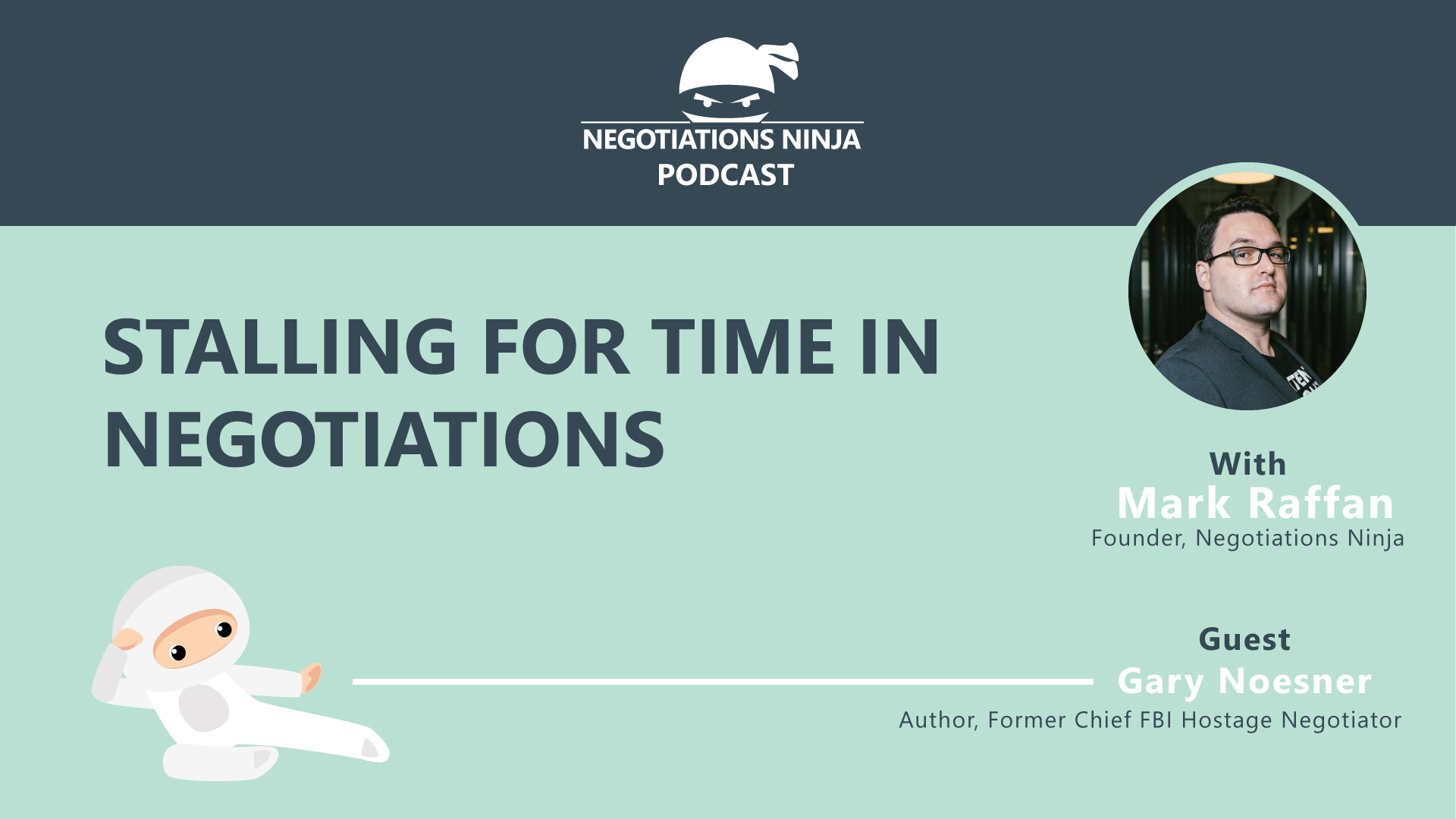Gary Noesner—the FBI’s first Chief Negotiator—joins us to chat about his fantastic memoir Stalling for Time and shares incredible stories about the most famous hostage crises in U.S. history. From the Montana Freemen standoff, and to the D.C. sniper attacks, he offers a candid look at his years in the ranks of the Bureau. Gary was on the front lines of the 51-day standoff at Waco and the complex story is told in the miniseries Waco with Gary played by Michael Shannon.
Gary Noesner retired from the FBI in 2003 following a 30-year career as an investigator, instructor, and negotiator. As the Chief of the FBI’s Crisis Negotiation Unit (Critical Incident Response Group), he was heavily involved in numerous crisis incidents covering prison riots, right-wing militia standoffs, religious zealot sieges, terrorist embassy takeovers, airplane hijackings, and over 120 overseas kidnapping cases involving American citizens.
Outline of This Episode
- [1:50] Gary’s background in the FBI
- [5:43] Reliving the events while writing
- [8:33] Why “Stalling for Time?”
- [10:49] How to slow things down
- [12:41] Manage emotion and communication
- [16:04] Vocalizing fears and concerns
- [26:20] How you say things matters
- [29:21] Practice in everyday situations
- [36:31] Learn more about Gary Noesner
Reliving the events while writing “Stalling for Time”
Gary notes that it was interesting to be retrospective and sift through his notes on his time with the FBI. As an instructor throughout his career, he always took lessons and started to share them around the world as he taught. He became quite comfortable sharing mistakes he made and the lessons he learned. An anecdote or story to drive home a point is far more impactful than a PowerPoint. Putting the book together and trying to condense down his career was the most difficult part. His publisher only used half of the material that he submitted. The book is part memoir and part lessons learned. Situations can be resolved effectively when you’re patient, think before acting, and diffuse anger, frustration, and emotion. The lesson isn’t always embraced, but he points out that we’ve come a long way.
How to stall for time
In the negotiation profession, the underlying theme is that you need to slow things down and stall for time. It allows emotions to subside, resources to arrive, accumulation of information, and understanding why someone is doing what they’re doing. In 99.9% of the incidents, slowing it down and avoiding rushing will improve the situation.
How do you stall for time and slow things down? The primary negotiator can help project a calm demeanor on the perpetrator through your own demeanor. It’s up to you to set the example. Slowing down the pace of your voice and slowing the exchange allows the words to sink in—and slows the exchange. It needs to be sincere and genuine. It can be a powerful tool for influencing their behavior.
How do you manage emotion and communication within your team? Gary shares a few thoughts, be sure to listen for his advice.
How to get people to vocalize fears and concerns
In some cases, the individual controlling a hostage situation is frightened and uncertain. Many incidents are sparked by rage and most have no idea how to get out of what they got themselves into. They often don’t think beyond taking the original action they fantasized about. If you get them to talk, you can begin to suggest alternative solutions. They may become more receptive to your suggestions and pay attention.
One of the key questions that corporate negotiators use is, “What happens if you don’t do this?” Usually, the person you’re negotiating with doesn’t have the answer. Forcing them to think of the risks and repercussions causes them to vocalize their fears. You want to move someone emotionally along the negotiation.
When you get them to talk about it, it becomes less of a problem to consider other potential outcomes. Sometimes you have to engage in a one-way dialogue and say things like “You must be concerned about our intentions. We don’t want to hurt you, we want to take care of you and the kids.” You can make assumptions based on the circumstances and address them. It goes a long way to help them feel more confident and comfortable. Even if your assumptions are wrong, you can still learn a lot from their response.
You have to earn the right to influence.
The relationship matters
Gary emphasizes that you have to become a lifelong student of the game. Good negotiators become insatiable learners. They learn more about human behavior and devote their lives to the art of communicating effectively.
When Gary resolves a hostage situation, he’s always asked what he said to diffuse the situation. The answer is almost always the same: “I don’t remember what you said, but I liked the way you said it.” So much of a willingness to comply isn’t based on the deal or the words said—it’s about the relationship that’s been created.
Your first goal should be to create a relationship. That helps you achieve the outcome that you want.
How can you learn and practice these skills? How do you know if you have a natural knack for it? Learn more in this episode of Negotiations Ninja.
RESOURCES
- BOOK: Stalling for Time
Connect with Gary Noesner
- Gary’s Website
- Stalling for Time
- The Cast of Waco | Build Series with Gary Noesner played by Michael Shannon
Episode Sponsor
- 2019 SCMA Conference and Awards Gala – 100 Year Celebration
- Discount Code: scma podcast
Connect With Mark
- Follow Negotiations Ninja on Twitter: @NegotiationPod
- Connect with Mark on LinkedIn
- Follow Negotiations Ninja on LinkedIn
- Connect on Instagram: @NegotiationPod




